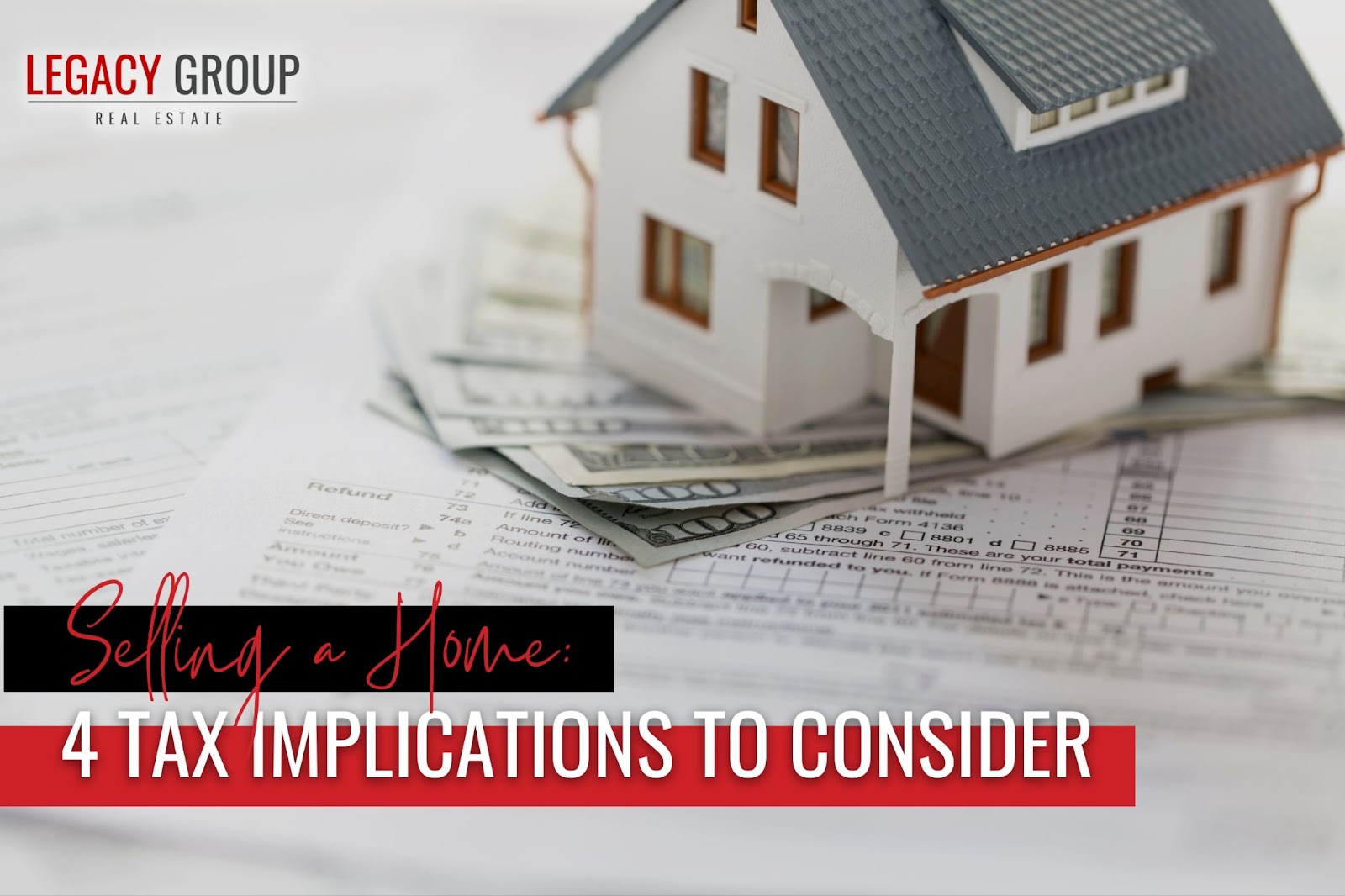Selling a Home: 4 Tax Implications to Consider
If you’re selling a home in Spokane, Washington or northern Idaho, you may be looking forward to making a significant profit. However, before you become too excited and start thinking about how you will spend your earnings, you’ll want to consider the potential tax implications of selling your house. Here are a few ways a home sale can impact what you will owe in taxes.
One: The Possibility of Paying Capital Gains Taxes
Capital gains taxes are taxes you must pay on selling a capital asset. A capital asset is something you own and use for investment or personal purposes, including stocks, bonds, and houses. Whether you owe capital gains taxes on the sale of your home will depend on how long you have owned your home, how much money you sold your home for, how much money you invested in your home (both for purchase and later improvements), and your annual income.
Capital asset gains fall into two categories: short-term gains (if you’ve lived in your house for less than a year) or long-term gains (if you’ve lived in your home for more than a year). Homeowners with a short-term gain will be taxed at their regular tax bracket. Those with long-term gains will be taxed at a rate of 0%, 20%, 25%, or 28%; the rate you receive depends on your income and filing status.
Two: Whether You’re Eligible for Tax Exclusions
If you meet specific criteria, you may be exempt from paying capital gains taxes on the sale of your home. These exclusions enable you to exclude up to $250,000 in gains from the sale of your home if your tax filing status is single and up to $500,000 of your gains if your status is married and filing jointly. The criteria you must meet to claim this exemption are:
- You must have owned your home and used it as your primary residence for at least two of the last five years
- You must not have sold another home in the past two years, or if you did, you must not have claimed an exclusion on the gain you made from the sale
There are a few other wrinkles in the regulations, but many homeowners can take advantage of this exemption and owe 0% of their gains on the sale of their home. Keep in mind that if you are married and filing jointly, you and your partner must have both lived in the home for at least two of the last five years for it to qualify for the exclusion.
Three: If Your Home Is a Vacation Home
If you make a profit selling a vacation home, which is usually a second home, all of your gains may be taxable.
However, you may be able to take advantage of the tax exclusion if you properly “convert” your vacation home into a primary residence and meet all the applicable tax rules. Similarly, if you plan to purchase a new vacation home with the proceeds, you may be able to defer capital gains taxes with a “Section 1031 exchange” – a term that refers to Section 1031 of the Internal Revenue Code. This works by converting your vacation property into a rental property for a period of time and then selling the property to invest in another rental property, which you can later convert into a vacation property.
To take advantage of these tax benefits, you must be very careful to obey all of the tax rules, and meeting all of the requirements must be supported by sufficient documentation. You will need to consult a tax advisor to ensure you don’t inadvertently commit tax evasion.
Four: If Your Home Is a Rental Property
Similar to a vacation home, profit made from the sale of a rental home is subject to capital gains taxes; rental properties do not benefit from tax exclusions. However, as noted above, if you plan to re-invest your proceeds directly into another rental property through a Section 1031 exchange, you can defer capital gains taxes so long as you comply with all IRS rules. You will want to consult a tax advisor to ensure you fully comply with the regulations.
As with vacation properties, the only way to avoid paying capital gains on the sale of a rental property (that is not part of a Section 1031 exchange) is to convert the rental property into your primary residence. This means meeting rules consistent with IRS requirements; changing your address and claiming that the property is your primary residence is not enough. Finally, you should also consult your state’s regulations on capital gains taxes to make sure you do not run afoul of state laws regarding capital gains.
Selling your house involves a lot of moving parts, but if you work with a skilled real estate team, you can be confident that your interests are being capably represented. Before you proceed, talk with your tax accountant to find out what tax liability you may be facing and what you can do to avoid owing significant taxes. For assistance and information about buying or selling a house, contact Legacy Group Real Estate today. Our experienced agents look forward to handling your next real estate transaction.

